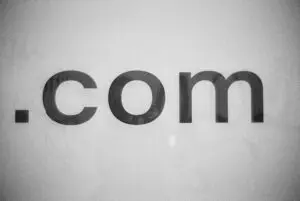What is it?
The internet has grown at unbelievable rates over the last 15 years, and it’s easier than ever to get a place on the web. Of course someone had to go and ruin it… malicious users create sites that pretend to be something they aren’t, insecure pages can be compromised to collect payment details entered into forms, and personal data can be stolen from savvy individuals.
Without getting very technical, SSL protects the traffic between your customers’ computer and your web server, making it really difficult for someone to get in the middle and mess around. The SSL certificate tells your device “this site is who they say they are” and protects against malicious interference. With everything being made available online, traffic to and from your site needs to be secured – just like your car, home, and personal computer.
Do I need it?
The responsible answer: Yes. The long answer: Not necessarily, but most likely yes.
For example, you might not feel the need to lock your car depending on your location, its value or other factors. But locking it and using an alarm system gives you a better sense of confidence and insurance against theft or damage.
If you collect payments on your website, it’s an absolute MUST. Payment providers like PayPal and Stripe actually require you to have an SSL certificate on your site to accept payments in integrated forms. Even without collecting payment details, if you request any personal information from customers on your site, you want their data to be protected when it’s entered into your forms.
What if I don’t have an SSL certificate?
Not using SSL wasn’t always a big deal, but recent changes to browsers over the last year has made it almost necessary. Google’s Chrome browser and Apple’s Safari warn users when visiting sites that aren’t secured. If someone visits your site using HTTPS (the default for most browsers), and you don’t have an SSL certificate installed and properly configured, these potential customers will see a bold warning and have to provide additional authentication on their device before being able to see your site.

Also, if a user begins to enter data into a form on an unprotected site, the browser may also show an additional warning stating “This site is not secure” and to think twice before continuing.
On top of that, search engines like Google and Bing will significantly lower the rank of your site in search results (among many other factors). If you’re trying to attract new business through your website, it’ll be more difficult without proper configuration of an SSL certificate.

How do I get one?
We provide registration, configuration, and ongoing support for SSL certificates. We purchase and register certificates through one of the top three providers that offers some of the best encryption and warranties. With the purchase of an SSL certificate in addition to a domain or management plan, we handle all of the configuration for you. Give us a call for more details about the cost, warranty, and value of protecting your site with SSL.


